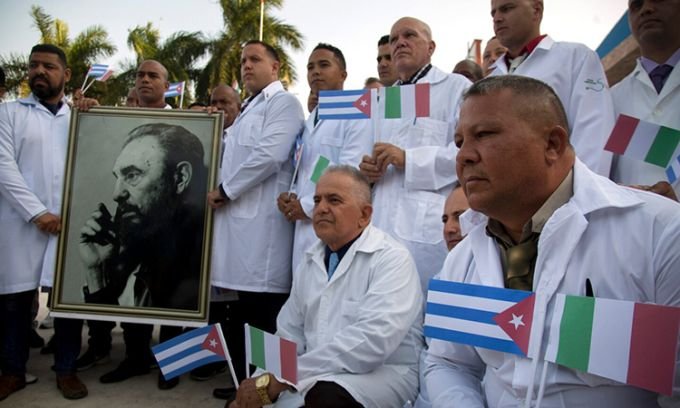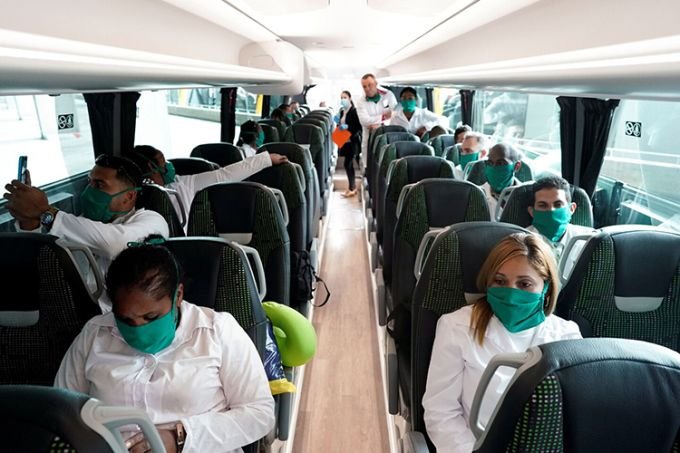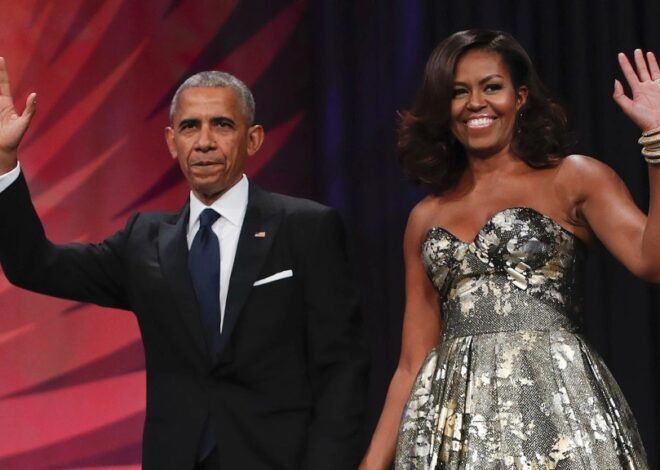
Regret turning his back on the Cuban doctor
A delegation of Cuban medical experts had to board a plane to return home last year, when the countries they supported no longer needed them.
To show support for the maximum pressure policy of the US ally, the governments of many South American countries decided to end the agreements that had brought thousands of Cuban doctors and nurses to work in hospitals from around the world.
Cuban medical experts pose for a photo with a portrait of Fidel Castro before leaving Havana for Italy.
Now, Ecuador and neighboring countries in South America such as Brazil and Bolivia are struggling to cope with nCoV, which is causing hospitals to quickly become overwhelmed.
`When they leave, no expert can replace them,` said Ricardo Ramírez, a retired doctor and now head of the Anti-Corruption Commission in Guayaquil, a city hit hard by Covid-19 in
As Covid-19 breaks out across the globe, medical brigades, which Cuba established during the Cold War, are making the world pay attention.
The revival of Cuba’s `doctor diplomacy` has caused the Trump administration to continuously sound warnings.
But as nCoV spreads, many countries are looking to Cuban doctors and nurses as an emergency solution.
In Bolivia, hundreds of Cuban doctors left last November, after right-wing Vice President Jeanine Anez took power to replace President Evo Morales, causing relations between La Paz and Havana to quickly cool.
`If Cuban doctors and nurses remained in Bolivia, we would deal with nCoV better,` said María Bolivia Rothe, a health official under Morales.
The `medical brigade` program has deployed more than 28,000 Cuban medics to 60 countries, bringing huge foreign exchange revenue to a country held back on all sides by the decades-long US embargo.

People build graves at the Angela Maria Canalis cemetery in Guayaquil, Ecuador.
Ecuador called on Cuba for medical assistance during the 2001 dengue fever epidemic and after the 2016 earthquake. The agreements between the two countries were made between 2013 and 2015, under former president Rafael Correa, who built the relationship
In 2015, there were 800-1,000 Cuban experts in Ecuador, according to former health minister Carina Vance Mafla under Correa.
Lenín Moreno, who replaced Correa in 2017, quickly became close to the Trump administration.
The Moreno government claims the move brings more job opportunities to Ecuadorians.
In Guayaquil, Ecuador’s largest city and also the epicenter of the Covid-19 epidemic, nCoV overwhelmed the hospital system, causing dead bodies to be left on the streets for days.
`Their termination of medical cooperation with Cuba not only hinders efforts to respond to the current terrible situation, but is also a terrible mistake,` Mafla said.
Some people in Ecuador believe that Cuban doctors and nurses are not trained according to international standards and will not be of much help in the current situation, when the biggest problem in Covid-19 response is the lack of supplies, not
However, countries that are using Cuban medical brigades to deal with nCoV say they are an indispensable force.
`Many of our nurses are scared to treat Covid-19 patients because it’s so contagious. They don’t have the same experience,` Browne said.
Antigua and Barbuda has welcomed Cuban medical brigades for many years.
`We need support to deal with this life-threatening virus, which Cuba is willing to help us with,` Browne declared.

Cuban doctor boards a bus at Adolfo Suarez Barajas airport in Madrid, Spain.
Brazil, Latin America’s largest country, welcomed 8,500 Cuban doctors and nurses under leftist president Dilma Roussef.
The Cuban medical brigade’s departure left some of Brazil’s most vulnerable communities abandoned.
As Brazil tries to increase recruitment for public hospitals and clinics, health officials have vowed to prioritize Brazilian citizens.
Alexandre Padilha, former health minister under Rousseff, assessed that the lack of Cuban medical staff means Brazil is `even more difficult at a time when Covid-19 is most intense`.


